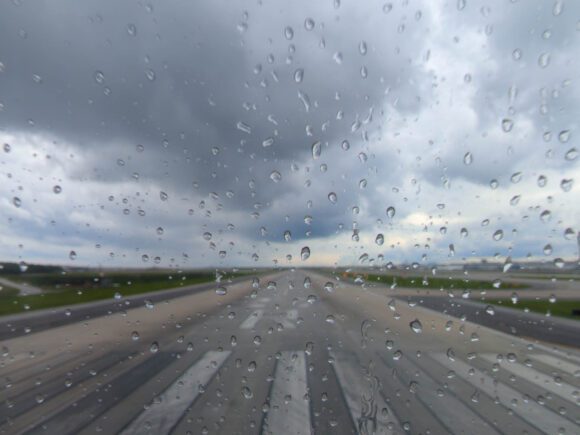Even in these days of Internet everywhere, about 60% of airline tickets are sold globally (around 40% in the US) via travel agents. Travel agents use the Global Distribution System (GDS) for their bookings. Approximately one billion airline tickets are sold per year. IATA, the global airline association, believes “this model is focused on finding the lowest fare and not on the attributes of the product being sold, it contributed to the commoditization of air travel.” Of course there is some convenient memory lapse here – after all, the airlines invented the GDS.
With the arrival of the Internet, airlines quickly started to dump their stakes in their GDS as they moved into this new channel. You may well remember how airlines offered customers 500 miles for booking the website rather than use other channels. Airlines also were better able to unbundle things they wanted to charge for – bag fees being a big one. The Internet allowed airlines to increase ancillary income. Airlines have become ancillary revenue junkies. The capability to sell ancillaries is critical for airlines since it nets them (according to Amadeus, a GDS) $36 billion annually.
But the GDSs did not keep up and develop the same capability for the Travel Agents. So after trying to persuade the GDSs informally, IATA has taken the initiative and started a process to “develop new distribution standards to enable airline product differentiation.” The goal here is to offer open standards so that even GDSs can offer these options for travelers. A key issue here is to ensure customization can be enhanced – personal customization has become very important. Travel agents are obviously more customer focused on a personal level than an airline.
This New Distribution Capability (NDC) will enable airlines to fill a capability gap between their direct (Web) and indirect (Travel Agents) channels, providing identical retail capabilities across all channels. Sounds perfect, right? The process utilizes a Dynamic Airline Shopping engine API based on IATA XML messages. Regular industry observers might recognize that the NDC sounds a lot like “direct-connect” strategy at American Airlines.
So it’s no surprise then to observe opposition by travel agencies. The American Society of Travel Agents and the Business Travel Coalition said they “emphatically” reject IATA’s claim that the NDC standard was coordinated with the travel agency community.
Tony Tyler, Director General and CEO of IATA defended the NDC program. “When they (passengers) buy the hotel component of their travel, they can choose the room category, views, package it with a spa treatment, and add breakfast or dinner options. Compare that to the options for buying a plane ticket from an agent. We have lots of ways to add value to our passenger’s travel experience. But the legacy model that powers current GDS systems cannot efficiently facilitate making these known to the traveler. The NDC will allow airlines to make their product offers available in the way that they would like to present their products. It will allow GDSs and new entrants to develop new solutions to revolutionize airline retailing.”
As is typically the case in arguments like this, there is no black and white or right and wrong. But a key data point is useful. Currently the GDS cost to an airline is $15 per ticket. Taking 60% of one billion means the airlines pay the GDSs’ about $10 billion dollars every year. Add in other costs such settlements (BSP) and credit card fees and there is a significant impact to the airline industry. Particularly when profit margins have been so low for legacy airlines. If airlines could see that cost reduced to (say) $5 per ticket it clearly has a significant impact on the bottom line of the airline industry. The GDS cost is a major irritation to airlines that have a $3 cost for selling their tickets via their own websites.
IATA and its members speak about the benefits to the travel distribution chain. Clearly IATA is focused on airline profitability. Given that airlines mostly make losses this is no surprise.
However, consider the financial state of the airline industry. How many airlines are going to be able to deploy the IATA NDC? Who will pay for the development? If the few major airlines do this it will be for their own benefit and most likely be too complex for smaller less financially strong airlines. How many LCCs are going to develop an interactive pricing and availability engine?
Industry watchers know how this is going to end. The GDS and other aggregators (Travelocity, Expedia, Orbitz, etc.) will have to do it. The cost will thus be driven out from airlines down the distribution chain – which is perfect for the airlines because it means lower costs for them for a system defined by them.
It is perfectly rational for airlines to cut their distribution costs which have remained high even as the industry has cut costs everywhere else. In 2009 American Airlines paid over $850m in distribution costs; at United (including Continental) the number was over $1.2bn. To give a perspective – these numbers equate to paying cash for between four and five 787s at each airline per year. This is serious money. An airline like Southwest which sells about 80% of its tickets through its website (at much lower cost than a GDS) clearly has no incentive to join the NDC crusade.
The NDC wants passengers to make purchase decisions on more than price. But price is the single key decision driver for a passenger. And if one thinks the players in the distribution chain intend to give up their revenue stream to pass more on to the airlines or consumers without a fight, they are being more than naive. The two protagonists, airlines and GDS’, are going to try show how they protect the passenger’s interests. Neither should be entirely believed. At the same time both are partially telling the truth.
Views: 0



